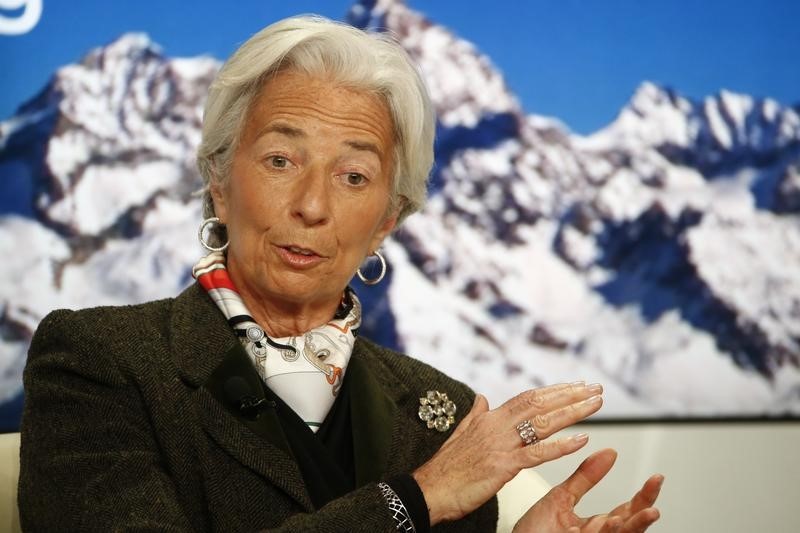By Stephen Brown and Susan Heavey
BERLIN/WASHINGTON (Reuters) - The International Monetary Fund and Group of Seven leading economic powers on Wednesday praised the Ukrainian government's determination to reform the economy against all odds, with the G7 saying Kiev's new draft budget should put it on track for an IMF-led bailout.
Ukraine's parliament approved on Monday a raft of IMF-backed amendments to its 2015 draft budget that Kiev hopes will help it clinch a $17.5 billion (11.5 billion pounds) bailout from the IMF, whose board is expected to meet next week.
IMF chief Christine Lagarde cautioned that what she called the "huge distraction" of fighting against pro-Russian rebels in eastern Ukraine complicated the provision of aid, but she was in no doubt that Kiev was now "really determined to reform".
The Fund has yet to approve the new package, and disbursing the next tranche of cash is partly contingent on the budget passing. But G7 ministers said they expected "a positive consideration of the Ukrainian programme" by the IMF board.
"This legislation makes significant progress toward implementing the prior actions on a new economic reform programme that will be supported by a four-year IMF Extended Fund Facility," said the Canadian, French, German, Italian, Japanese, British and U.S. finance ministers.
Ukraine faces a perfect economic storm. Close to bankruptcy, with much of its industry based in the separatist-held east, its central bank was forced to raise its benchmark refinancing rate to 30 percent from 19.5 percent this week in an attempt to rein in rocketing inflation and prop up a faltering currency.
Last month, Lagarde said Ukraine would receive about $40 billion in total funding over the next four years, nearly half from the IMF. Ukraine's finance ministry has said the package would include up to $15 billion from debt talks with creditors, which are expected to start next month.
However, Lagarde said in an interview on Wednesday that the infusion of financial aid and its impact hinges on the evolution of the fighting, which is now subject to a fragile ceasefire.
"What we are trying to help Ukraine with is a set of reforms, massive financial support -- but all of that is really going to depend on how it stabilizes on the east of Ukraine and how the war comes down and the conflict stops," she told MSNBC.
"It's like trying to walk while carrying this big burden with you at the same time," she said.
Her comments come as European leaders separately consider additional options, including more sanctions on Russia, to address Ukraine's security crisis and Russia's role in supporting separatists there.
Both sides accuse each other of violating the ceasefire that took effect on Feb. 15. Lagarde said the economic collapse of Ukraine was not in Russia's interest "because it is a supplier, because it is a creditor and because it wants to get paid and reimbursed at the end of the day."

Asked about Russia's financial role in Ukraine, Lagarde said the payment situation over gas supplies from Russia to Ukraine was "pretty much under control." On Tuesday, Russia said it would consider offering Ukraine a gas discount.